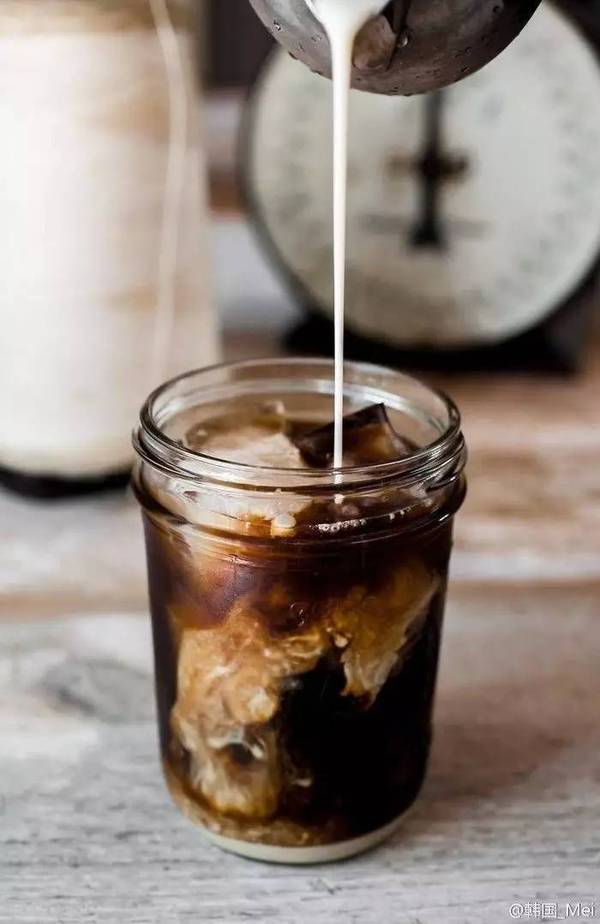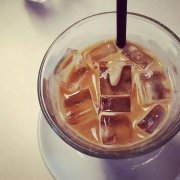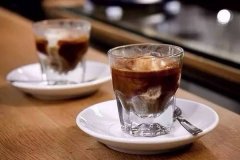90+ Dench Dream Flavor Description Dench Dream Coffee Which Brand Is Good

Professional barista communication, please pay attention to coffee workshop (Weixin Official Accounts cafe_style )
Danch Meng [name origin]: Danciman (Danch Meng) is actually the second brand Level up of NINETY PLUS Company. It is an Ethiopian raw bean jointly launched by the company and Bodhi Leaf, a raw bean trader. It was listed in 2013. Danch Meng is transliterated locally as "Perfect approach"(Jiatu). It is planted by small farmers in Yega Shefi Jinlena Abaya Du Mensuo. It is a product launched against the background of NINETY PLUS Company's professional flavor process. With 90+ sun treatment technology, Let Danchiman have a very unique flavor of yega-shefi.
[Origin]: Ninety + Ethiopia SNNP, Kambata production area
Altitude: 1700m - 2000m
[Treatment method]: Sun exposure
Flavor: Cocoa, black raspberry, plum, juicy, floral aroma, blueberry, dark chocolate Drima Zede
Net weight: 227g Packing: Bulk Origin: Ethiopia
Levelup Drima Zede
Country: Sidama
Altitude: 1750-2000m
Origin: Sidamo
Hand-washed Sidamo. 15g powder, medium fineness grinding (small Fuji ghost tooth knife 3.5 grinding), v60 filter cup, 91-93 ℃ water temperature, the first injection of 30g water volume, 27 seconds stewing, injection to 105g water volume cut off water, wait for the powder bed water volume to drop to half, then slowly inject water until 225g water volume, the tail section does not, water powder ratio 1:15, extraction time 2:00
Danch Meng is transliterated from Danqi Meng, which itself means good way. This batch comes from Kambata of Yega Shefi. Thanks to 90+ sun treatment technology, Dench Dream has a very unique flavor of Yega Shefi.
Levelup is a sub-brand from the famous Ninety Plus company, launched by 90+ in conjunction with raw bean trader Bodhi Leaf, and launched in 2013. Levelup team quality control was led by Semeon Abay, and Ashenafi Araw, former president of the Sidama Farmers Cooperative Union, was brought in to lead the project.
Ninety Plus is an American coffee company that is different from the average green bean trader. It advocates sourcing from origin, finding good beans, and operating for a long time! To find good beans, they can roll up their sleeves and work with local coffee farmers to build their own brands and co-brands. Moreover, 90+ company attaches great importance to the post-processing of coffee fruit, and has its own unique set of raw bean processing methods! They are also unique in the naming of coffee, unlike other beans named after the region, 90+ coffee is named after the coffee flavor after rigorous cup testing.
According to the influence of fruit flavor on taste during processing, it can be divided into W2, H2 and N2 from low to high. These three flavors can also be simply understood as processing methods: W2=WASH washing treatment;H2=Honey honey treatment;N2=NATURE sun treatment:
W2: Low fruit tone; emphasis on brightness, acidity, and floral fragrance.
H2: Moderate fruity tone; sweet, fruity (rather than fruity), and tea-like.
N2: High fruity notes; emphasis on bold, sour, jam and dried fruit flavors.
Degree of roasting: Light roasting
Treatment: Sunlight
Breed: Native species
Plant: NinetyPlus Ninety +
Flavor: Nectarine, tropical fruit, oak barrel aromas
"90 +" does not mean all coffee rated above 90. Good coffee, one year, one year nothing. Sometimes it appears in different estates and has different taste characteristics. "Ninety +" refers to a 13-flavor range of premium coffee. These coffees come only from the American boutique coffee creator-NinetyPlus Coffee. They are all Ethiopian Heirloom old varieties, cultivated in an ecological environment and processed under art standards to optimize taste. The processing process is 90 +'s specialty. It will separate these coffees one by one according to variety, microclimate and fresh harvest time, taste them one by one, design processing methods for each taste, achieve a taste characteristic, just like the design of big brands, carefully study and spend painstaking efforts to complete a handicraft close to art. Natural products go through a lot of refinement and improvement, and finally reach the most beautiful posture before presenting the content to everyone.
The ancient way of sun treatment, it is difficult to obtain pure flavor, in 90+ technical support, only hand-selected the most mature coffee cherry fruit, sun drying process is more troublesome to keep stirring, to ensure uniformity.
90+ beans are named in a completely different way from the usual fine beans. There will be no names of producing areas and estates. Each bean is named according to its flavor. For example, candle light means "best approach" in local dialect. Starting with a flavor concept, then naming, and then starting with the selection of production areas and cooperative farms, it can be seen that 90 is a brand with boutique management style.
Ethiopia has a variety of coffee cultivation methods: from wild coffee groves and semi-developed plots, to small plots of traditional farming, to modern plantations. About 50 percent of coffee is grown at altitudes of more than 1500 meters. According to the four different production methods mentioned above, Ethiopian coffee can be divided into nine coffee producing areas, including five fine coffee producing areas: Sidamo, Yejia Shefei, Harald, Lim, and Lekamp, and four general commercial bean producing areas: Gemma, Ilubabo, Tiebi, and Bebeka. Each district has adopted the method of sunning or washing, and different processing methods also affect the flavor. At present, solarization accounts for about 80% and washing accounts for about 20%.
Important Notice :
前街咖啡 FrontStreet Coffee has moved to new addredd:
FrontStreet Coffee Address: 315,Donghua East Road,GuangZhou
Tel:020 38364473
- Prev

90 + Danqi Dream correctly drink French Danqi Dream Coffee Bean Price
For professional baristas, please follow the coffee workshop (Wechat official account cafe_style) [Origin]: 90 + Ethiopia SNNP, Kambata production area [altitude]: 1700m-2000m [treatment]: sun [flavor]: cocoa, black raspberries, plums, juicy, fragrant flowers, blueberries, dark chocolate Drima Zede (net content: 227g packaging:
- Next

90 + what does Danqi Dream taste like? how to brew Danqi Dream Coffee?
Professional baristas follow the Coffee Workshop (Wechat public account cafe_style) Coffee can be grown in Ethiopia in a variety of ways: from wild coffee forests and semi-developed lands, to traditionally operated plots of land to modern plantations. About 50% of the coffee is grown more than 1500 meters above sea level. Ethiopian coffee according to the above four no
Related
- Detailed explanation of Jadeite planting Land in Panamanian Jadeite Manor introduction to the grading system of Jadeite competitive bidding, Red bid, Green bid and Rose Summer
- Story of Coffee planting in Brenka region of Costa Rica Stonehenge Manor anaerobic heavy honey treatment of flavor mouth
- What's on the barrel of Blue Mountain Coffee beans?
- Can American coffee also pull flowers? How to use hot American style to pull out a good-looking pattern?
- Can you make a cold extract with coffee beans? What is the right proportion for cold-extracted coffee formula?
- Indonesian PWN Gold Mandrine Coffee Origin Features Flavor How to Chong? Mandolin coffee is American.
- A brief introduction to the flavor characteristics of Brazilian yellow bourbon coffee beans
- What is the effect of different water quality on the flavor of cold-extracted coffee? What kind of water is best for brewing coffee?
- Why do you think of Rose Summer whenever you mention Panamanian coffee?
- Introduction to the characteristics of authentic blue mountain coffee bean producing areas? What is the CIB Coffee Authority in Jamaica?

